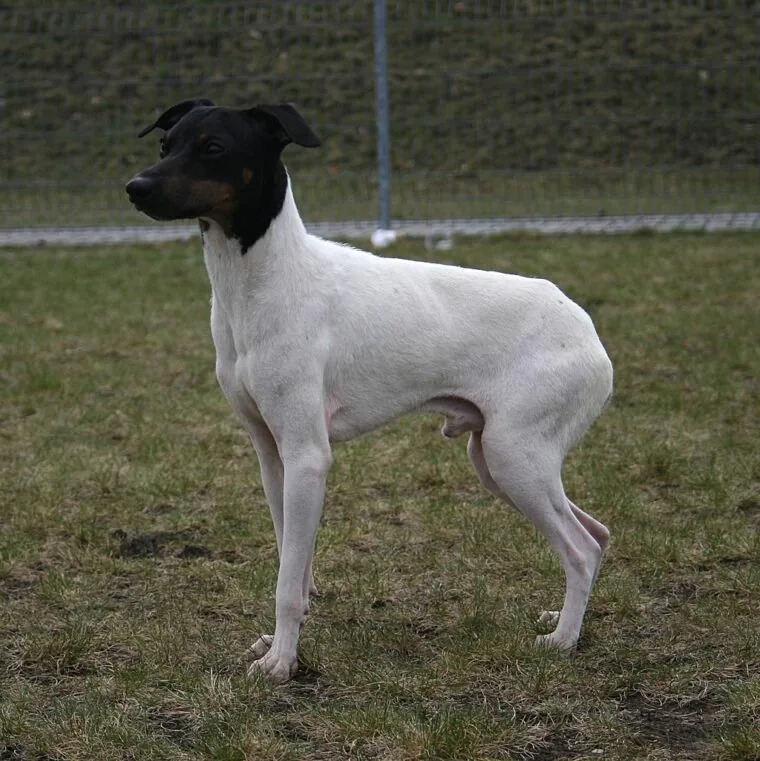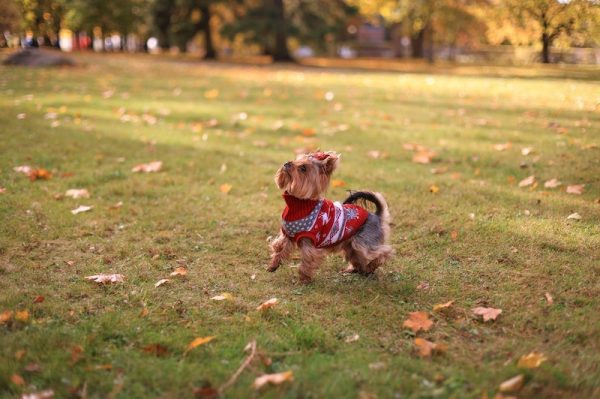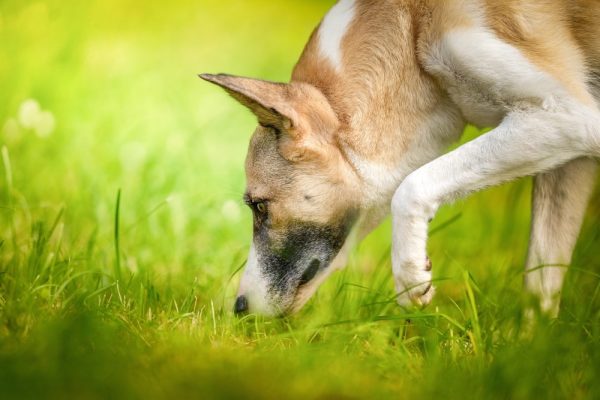In this article
View 8 More +The Japanese Terrier is a little-known dog that is a fascinating blend of East and West. Much like modern Japan itself, this breed is wholly Japanese with a strong dose of complicated Western influence. These little dogs are spunky, independent, and smart, but they are also reserved and hard to find. Here is everything that you need to know about the Japanese Terrier.
Breed Overview
Height
10–13 inches
Weight
10–12 pounds
Lifespan
13–15 years
Colors
Black, tan, white
Suitable for
Terrier lovers looking for a small independent dog with a unique history
Temperament
Intelligent, independent, reserved, energetic
The Japanese Terrier is a breed native to Japan, but unlike the Shiba Inu or Akita, they cannot trace their roots back to ancient times. Instead, this dog was the result of careful breeding programs developed by mixing new European breeds appearing on Japanese shores. The result is a terrier that resembles many European terriers (and American terriers) but that was wholly designed and bred in Japan, making them a highly interesting breed.
Japanese Terrier Characteristics

Japanese Terrier Puppies
Japanese Terriers are highly uncommon in the United States and Europe, as they’re primarily found in Japan. That is also true of the breeders. If you are in the United States and are interested in sourcing a Japanese Terrier puppy for yourself, your best bet is to reach out to the Japanese Terrier Club of America for more direct information about breeders that could be in your area. Even the American Kennel Club has limited information about Japanese Terrier breeders in the United States, showing just how sparse these dogs are outside of Japan.
Japanese Terrier Origin & History
Beginning in the 18th century, European traders, missionaries, and travelers started bringing dogs into Japan. From that point onward, curious Japanese dog fanciers began breeding their own dogs using European stock. After decades of experimentation, the Japanese Terrier was born out of English Smooth Fox Terriers and small mutt dogs sourced from the local streets. The breed did not start gaining real popularity until the early 1900s, but the population took a huge hit during World War II. Today, the Japanese Terrier remains popular in Japan, but they have not garnered worldwide fame and popularity like other Japanese breeds.

Temperament & Intelligence of the Japanese Terrier 🧠
Japanese Terriers are often described as intelligent, reserved, and watchful. These dogs love their families but are often wary of strangers. They have a strong, independent nature and a sharp mind. This can make them highly stubborn and difficult to train or break bad habits. Japanese Terriers make excellent watchdogs and alert dogs. They will bark at the slightest noise or sign of trouble. This is comforting for some people living on their own but can be obnoxious for people who don’t appreciate a dog that barks often. But know that Japanese Terriers typically only bark when they are alerted to something; they don’t often bark for no reason.
Are These Dogs Good for Families? 🏡
Mostly. Japanese Terriers are often great family dogs. They love to play with children and usually get along with other dogs. These dogs are highly adaptable and can be content with outside time or chilling inside. People will want to be cautious about this breed because of their stubbornness, though. If you get a Japanese Terrier with undesirable traits or a personality that doesn’t quite fit your family, you could struggle to train those traits out of them. Once a Japanese Terrier leaves puppyhood, they can be incredibly difficult to train or retrain.
Does This Breed Get Along With Other Pets? 🐶 😽
Usually. Japanese Terriers often get along with other dogs, especially ones that will play with them. These dogs are small but have boisterous personalities, so they might not get along with larger dogs that have aggressive tendencies. Japanese Terriers might not get along with small animals. Many will bark at them, and some still retain a terrier prey drive that will cause them to chase small pets.

Things to Know When Owning a Japanese Terrier
Food & Diet Requirements 🦴
Japanese Terriers do not have any specific dietary requirements. These dogs will do best on a well-formulated dry food. Active pups might benefit from food designed for active breeds. Careful calorie portions are required to ensure that these dogs do not become overweight. Since Japanese Terriers are small, they are at risk of becoming obese if they ingest too many calories. If your dog is overweight, the best thing to do is to cut calories by reducing food intake, though you should talk to your vet first.
Exercise 🐕
Japanese Terriers are energetic but not overly so. They will do best in a house with a fenced yard where they can be let out to roam and play at least once per day. They will also need twice-daily walks and mental stimulation. Japanese Terriers that do not receive the proper amount of exercise and mental stimulation can become mischievous and destructive when kept inside. Toys, games, and outside time will provide your dog with the mental stimulation they need to remain calm and well-behaved.
Training🦮
Japanese Terriers can be difficult to train. Training must start when the dogs are puppies for the best chance of success. Intensive socialization and obedience training are required. Consistency is key, as Japanese Terriers will be looking for loopholes and other ways to bend the rules. Older dogs might not take to fresh training, and they can be frustrating to owners because of their independence, stubbornness, and willpower.
If you are struggling to train an older Japanese Terrier, you might need to hire professional help and enroll your dog in obedience training. Trainers with experience with stubborn dogs or terriers are recommended. If you do manage to break through to your Japanese Terrier, they can become extremely well-trained and well-behaved, but getting to that point can be a struggle, especially for new or inexperienced owners.
Grooming ✂️
Japanese Terriers have extremely minimal grooming requirements. They have a short coat that maintains itself. These dogs will not need any professional grooming. Occasional baths can help keep your dog looking and smelling their best, especially if they spend a lot of time romping outside in dirt and grass. Outside of the occasional bath, Japanese Terriers require no other grooming considerations outside of standard things such as nail trims and anal gland expression, which should ideally be done by a licensed veterinarian.
Health and Conditions ❤️
Japanese Terriers are considered healthy dogs, as attested to by their long lifespan. They are only flagged for one serious genetic disease, Legg-Calve-Perthes disease. This condition causes the head of the thighbone to collapse, causing serious localized issues. This disease can be screened for during the grooming process and eliminated.
Japanese Terriers are also prone to having bad teeth. These dogs will need regular dental cleanings performed by your veterinarian, and it is recommended that you attempt to brush their teeth using dog toothpaste. Neglecting your Japanese Terrier’s mouth can lead to widespread tooth loss and rot as the dog ages. While this is not as big of an issue for dogs as it is for people, it is still a problem that needs to be watched and addressed as it arises.
- Patellar luxation
- Bad teeth
- Legg-Calve-Perthes disease
Male vs. Female
Male and female Japanese Terriers are similar in personality and composition. The only difference between the two is a slight size discrepancy. Females are typically slightly smaller than males. Males can stand over a foot tall and weigh 12 pounds. Females typically stand less than a foot tall and weigh closer to 10 pounds. These differences are minor, but they are fairly standard. The Japanese Terrier is a small breed, and the size differences are likewise small but present.

3 Little-Known Facts About the Japanese Terrier
1. The Japanese Terrier Was the First Terrier Native to Japan
The Japanese Terrier is the first terrier (or terrier-type dog) to be bred in Japan. Most native Japanese dogs are similar to Shiba Inus and Akitas, not terriers. When the Japanese Terrier began to emerge in the 1800s and 1900s, it was the first time that a dog of this size, shape, and background was bred in Japan.
2. They Are a Japanese Dog Bred From European Stock
The Japanese Terrier is interesting for a number of reasons, but the chief one is the fact that the first was bred out of immigrant European dogs. This is a unique blend of East and West, and the creation of the Japanese Terrier highlights Japan’s relationship with the West and how they collided during the 18th century and beyond.
3. The Japanese Terrier Nearly Went Extinct
The Japanese Terrier nearly went extinct in the wake of World War II. They were primarily kept in cities as small companion dogs. During the war, most Japanese cities were heavily damaged or outright destroyed. Cities like Hiroshima, Nagasaki, and Tokyo were completely wiped out, and they took most of the Japanese Terriers with them.

Final Thoughts
Japanese Terriers are not common in North America or Europe, but if you are lucky enough to stumble across one, you are in for a treat. These dogs are small, smart, and fun. They also maintain a strong link to the Opening of Japan and the mixing of East and West. The Japanese Terrier was nearly wiped out during World War II, but thankfully, the breed was able to be revived, and today, they remain a popular companion dog for Japanese city dwellers.
See Also:
Featured Image Credit: Japanese Terrier, Pleple2000, Wikimedia Commons (CC 2.0 Generic)


















